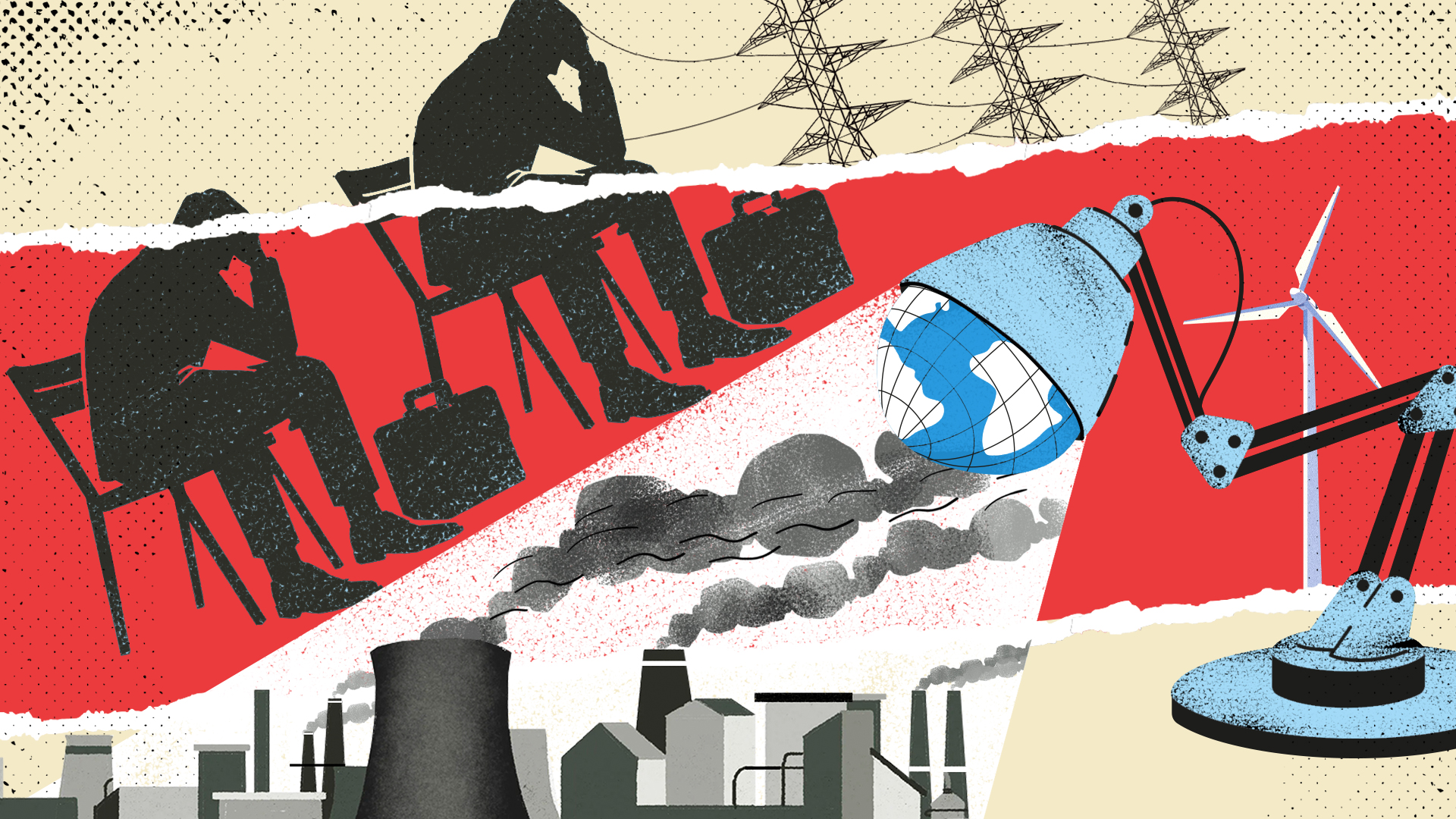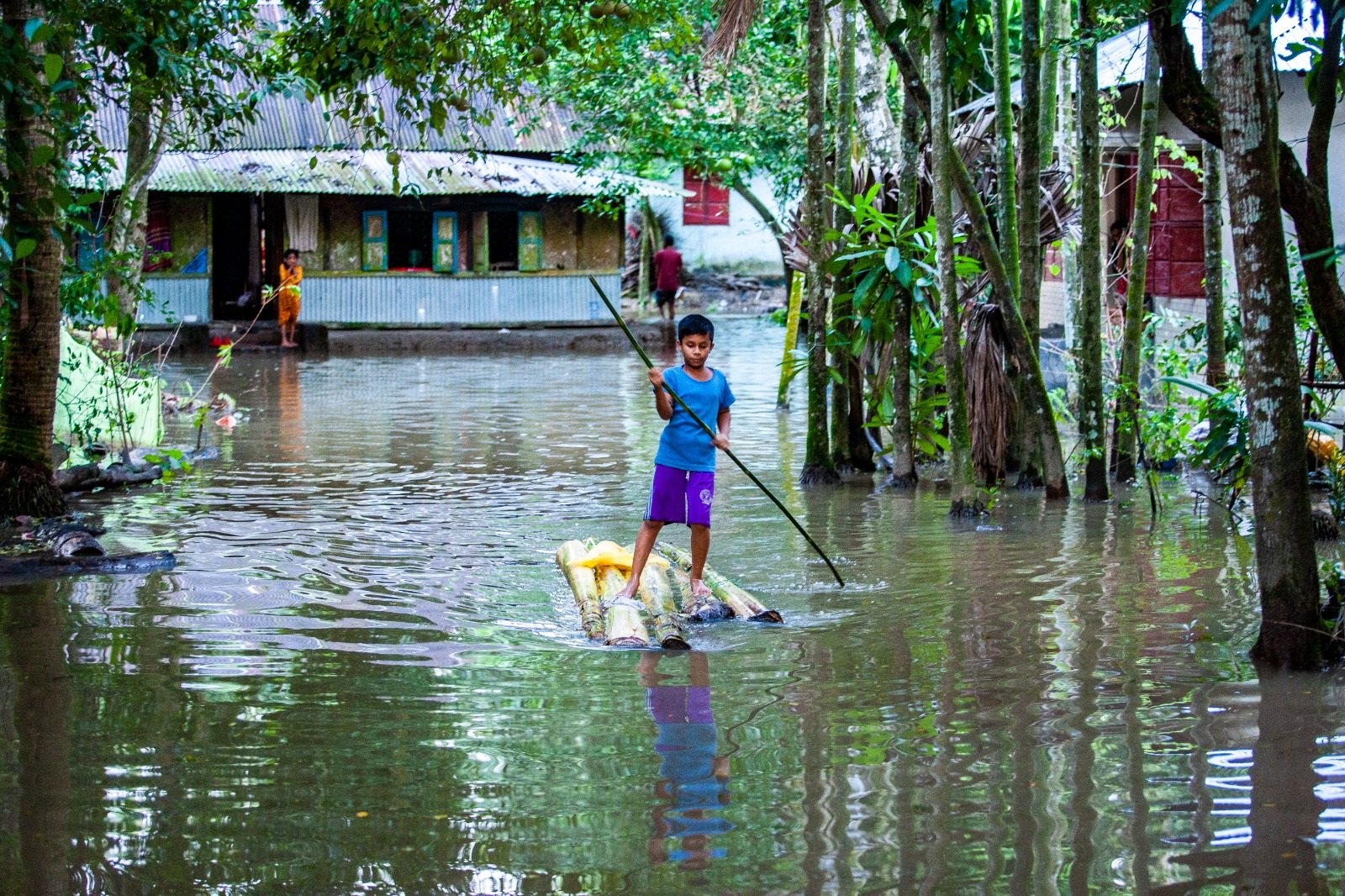Has the interim government delivered on climate as expected?

Over a year has passed since the interim government took office under a Nobel laureate whose widely recognised "Three Zeros" concept placed the environment at its centre, envisioning a world with zero net carbon emissions as the foundation for sustainable and equitable growth. Climate activists had high hopes as, for the first time, a globally prominent environmental advocate was leading a country facing urgent climate crises, with the environment ministry entrusted to one of its most respected environmentalists. Activists worldwide closely followed the government's actions, anticipating dynamism and innovation in confronting Bangladesh's pressing challenges. Now, as elections approach, the question remains: how far has the government met these expectations in addressing climate change, and what lessons might it leave for the next administration?
When the interim government assumed office, Bangladesh had already integrated climate and environmental priorities into national planning, beginning with the Bangladesh Climate Change Strategy and Action Plan in 2009 and advancing to the Mujib Climate Prosperity Plan 2022-2041. In FY 2023-24, a total of 917 projects had been launched under the Climate Change Trust Fund. Solar power had expanded rapidly, with more than six million home systems installed in off-grid areas, bringing electricity to rural households. Cyclone preparedness had also improved, with new shelters and stronger early warning systems reducing fatalities from hundreds of thousands in 1991 to only a few dozen in recent severe storms. Yet, serious challenges persisted: limited fiscal space, reliance on loan-based financing, unchecked pollution, and weak enforcement of environmental regulations. The World Bank's 2022 Country Climate and Development report identifies near-term policy and investment priorities and highlights the need to build institutional capacity to deliver on climate commitments, underlining that strategy is not enough without resource mobilisation and effective governance.
In this context, the interim government's climate actions can be assessed across four key environment and climate governance domains: (a) energy transition, (b) climate finance, (c) pollution control and conservation, and (d) disaster resilience.
Regarding energy transition, public expectations were high that the interim government would phase out costly quick rental power plants and accelerate renewable expansion. Instead, its decision to retain rentals sparked controversy for prolonging dependence on expensive fossil-fuel-based electricity rather than moving towards a clean energy shift. The draft Renewable Energy Policy 2025, which sets ambitious targets of 20 percent renewable power by 2030 and 30 pecent by 2041, has drawn scrutiny. The draft lacks structural support, adequate financing, and clear implementation strategies, cautioning that without critical revisions, the draft policy risks being another well-intentioned but ineffective document.
With regards to climate finance, the government secured significant international support, including $900 million from the World Bank for climate resilience and sustainable urban infrastructure and $270 million for flood recovery. Domestically, the 2025-26 budget earmarked Tk 41,208 crore for climate-related activities, amounting to over 10 percent of the total national budget and 0.67 percent of the GDP. Compare this climate finance's share of the GDP in FY20, which was 0.81 percent. The environment ministry, most directly responsible for climate governance, received only Tk 1,380 crore, or about 0.3 percent of the national budget, an amount widely viewed as inadequate. Compounding the challenge, most of the international funds came as loans rather than grants, raising concerns about debt sustainability.
In terms of pollution control and conservation, the government's steps have been largely symbolic, producing little real impact. It announced a ban on single-use plastics in government offices and introduced limited enforcement measures in public spaces. Nationwide plastic use continues to climb in the absence of a comprehensive regulatory framework. The government also launched drives to evict illegal encroachers from forest land, yet these have been sporadic and narrow in scope, with little lasting effect on conservation. Meanwhile, the "white stone" extraction and looting in Sylhet triggered controversy, exposing weak governance and lax enforcement in forest and mineral conservation.
Meanwhile, in disaster resilience, the government pledged significant climate funds for embankments, shelters, and early warning systems. However, in reality, delivery has been uneven, with resources tied up in bureaucracy and a disproportionate share directed toward large visible infrastructure rather than community-based adaptation.
In conclusion, the interim government's record on climate change reveals more symbolism than substance. Its activist credentials and high-profile pledges raised hopes of a transformative shift, but progress on the ground has not been as expected or much different from those in previous regimes. Bangladesh continues to demonstrate strong leadership on climate justice at the global stage, but domestically, the gap between promise and delivery remains wide. As elections approach, the real challenge lies in whether the next leadership can move beyond ambitious rhetoric and demonstrate the statesmanship needed to deliver tangible outcomes for communities on the frontlines of climate change.
Muhammad Muktadirul Islam Khan is head of consultants at Sustainability Action Learning Lab, Bangladesh. He can be reached at muktadirr@hotmail.com.
Views expressed in this article are the author's own.
Follow The Daily Star Opinion on Facebook for the latest opinions, commentaries and analyses by experts and professionals. To contribute your article or letter to The Daily Star Opinion, see our guidelines for submission.




 For all latest news, follow The Daily Star's Google News channel.
For all latest news, follow The Daily Star's Google News channel. 

Comments